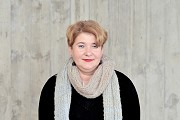Authors
Doubravka Olšáková1; 1 Faculty of Social Sciences, Charles University, CzechiaDiscussion
Pugwash was formed and engaged with the countries of the Soviet bloc during the period of 'restricted internationalism', a transitional phase between the Stalinist Sovietization of Eastern European scientific communities and multilateral cooperation of Eastern bloc countries in large-scale programmes under the aegis of the UN or UNESCO. Initiated after the Geneva Conferences, Pugwash offered an alternative both to official channels of dialogue between East and the West and relations forged in the course of East-West and East-East scientific and technological cooperation. The idea of an organization that provided a cross bloc platform was welcomed not only by the US and other Western countries, but also in the East – where the crisis engulfing the World Peace Council and the World Federation of the Scientific Workers helped to open the doors to Pugwash. For the Soviets, Pugwash was an interesting alternative not only as a means, potentially, to broach with the West issues where discussion through the usual political/diplomatic channels was not easy – even blocked. To do this, however, the Soviets called on support of their political allies within the Eastern alliance – whom, indeed, Moscow literally forced to join Pugwash, which was the case of the Czechoslovak Academy of Sciences and its participation in the 1961 Pugwash Conference in Moscow.
Despite political pressure from Moscow, the various Academies of Science across the Eastern bloc, which had been charged by Moscow with representing the Pugwash National Committees in these countries, took advantage of the opportunities accorded by this constellation to pursue their own interests. Not least, they developed important contacts with Western analysts such as a group of „Harvard professors“ Henry Kissinger, Paul Doty and Marshall Shulman who visited Czechoslovakia in early 1960s. The widening repertoire of specialized groups within Pugwash, ranging across diverse issues including biological weapons, nuclear threats, but also the German question in Central Europe or the problems of the so-called ‚Third World‘. Such a wide agenda considerably shaped the political, as well as research agenda in Eastern Europe, even though its scope continued to be controlled by the USSR.
The paper will briefly outline the history of the Czechoslovak Pugwash committee and Pugwash in Czechoslovakia, highlighting the pivotal role of both in promoting science diplomacy in the Soviet bloc. It will investigate their contributions to international scientific cooperation and promoting and developing new approaches to security issues, including the German borders question in Central and Eastern Europe.

